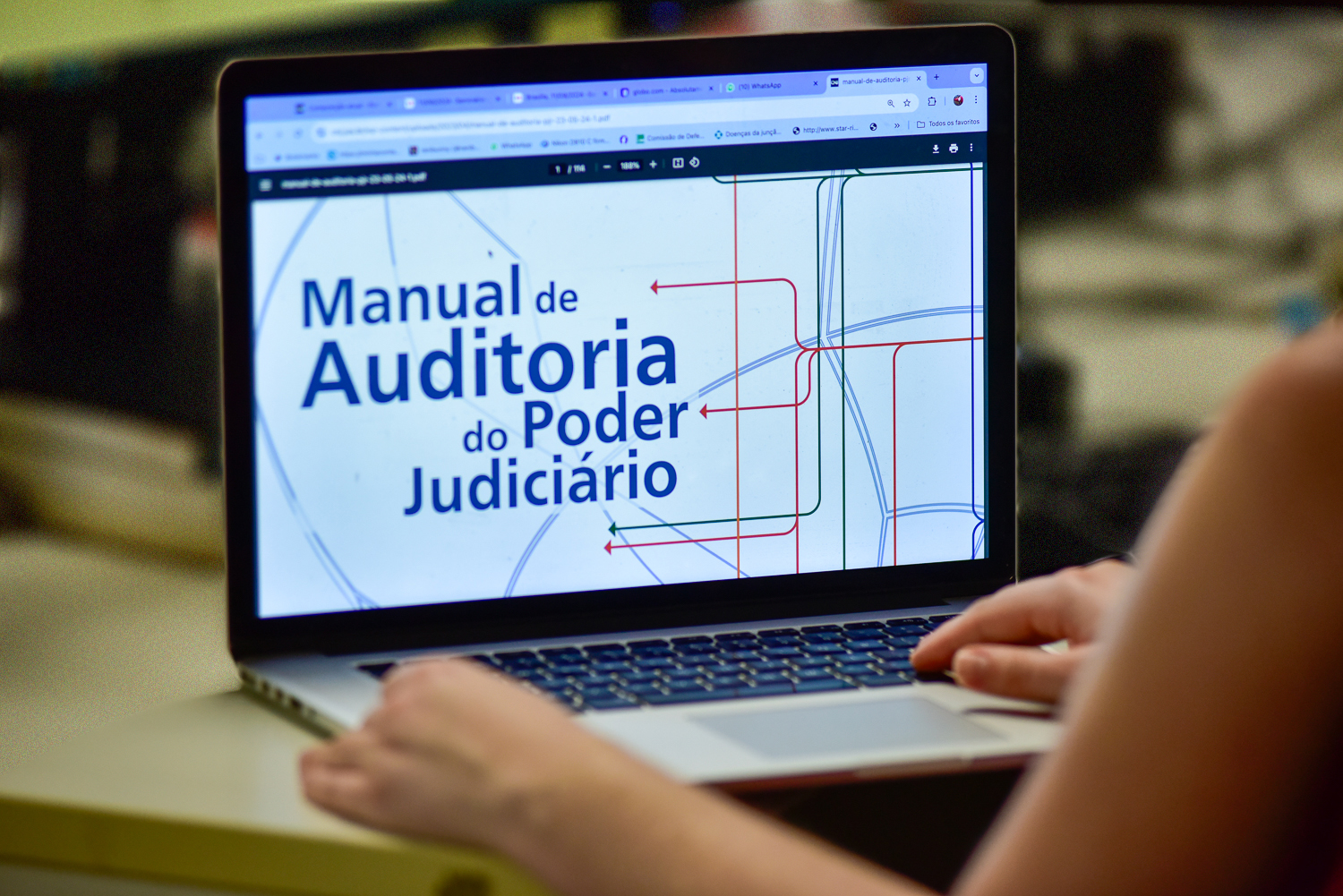
The content of the National Council of Justice (CNJ) manual on internal auditing in the Judiciary is the basis of the course offered this September on the platform of the Center for Training and Improvement of Servers of the Judiciary (Ceajud). Registrations are now open, and you can sign in at any time.
The educational offer brings together the necessary skills so that civil servers in the internal audit areas of the bodies of the Judiciary can carry out the activity effectively and with high quality. With a total of 50 class hours, the training is self-instructional, i.e. the student studies on his/her own according to the content offered.
There are three modules on the following topics: Introduction to the Internal Auditing Activity; Planning Applied to Auditing; and the Process of Conducting an Audit. The content is offered through written materials, recorded video lessons and supplementary material, enabling an understanding of the principles, techniques and practices of internal auditing. The course also covers international auditing standards through activities that simulate professional practice.
Self instructional
This is the second edition of the course, which was tutored in April this year by Professors Diocésio Sant'Anna da Silva and Antônio Cláudio dos Santos Rosa. Both are employees of the Judiciary and have accumulated experience in auditing. The first training course opened up 100 vacancies, all of which were filled. The current course has the advantage of not having a limit on the number of registrations, having been adapted to a format without tutoring.
“The course was designed to cater for both experienced auditors and beginners, promoting an enriching exchange among professionals with different levels of knowledge,” emphasized Professor Antônio Cláudio. Both he and Professor Diocésio took part in drawing up the Audit Manual. The tutor recalled that, in the first training, there were students who also contributed to the drafting of the document, “bringing a more in-depth view of the process”.
This contribution was also highlighted by Professor Diocésio. “We explored the Audit Manual in detail and applied the concepts to real situations,” he said. He points out that the course not only promotes the standardization of auditing procedures, but also reinforces the importance of integrity, transparency and compliance in the activities of the judiciary.
Access the Judiciary Audit Manual here
Based on the positive evaluations of the quality of the material offered, including the practical aspect and the didactics of the course, some adaptations were made for this second edition. “The recorded material has been revised and more focused on the day-to-day challenges faced by the internal audit units of the Judiciary,” said the Professor.
Another change is that the training has now been made available to all interested parties, including those outside the Judiciary. More information can be obtained from the Management Coordination of the Internal Audit System of the Judiciary, by e-mailing
The virtual learning environment of the Ceajud can be accessed here.




